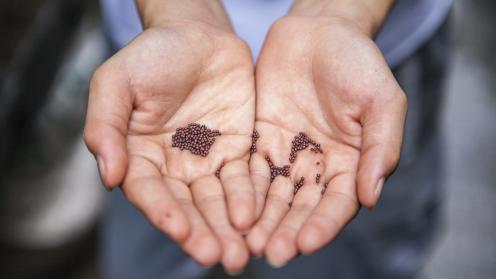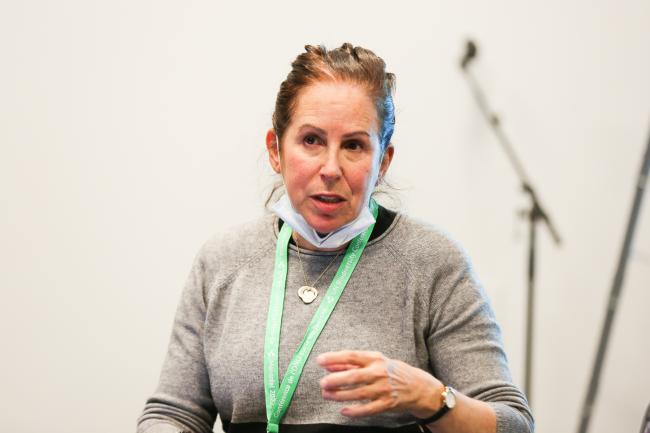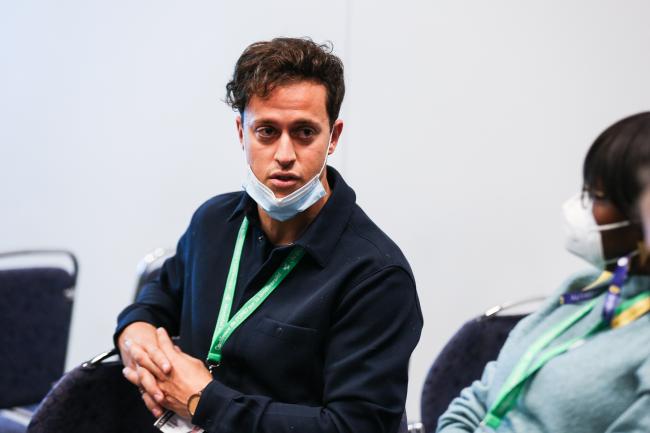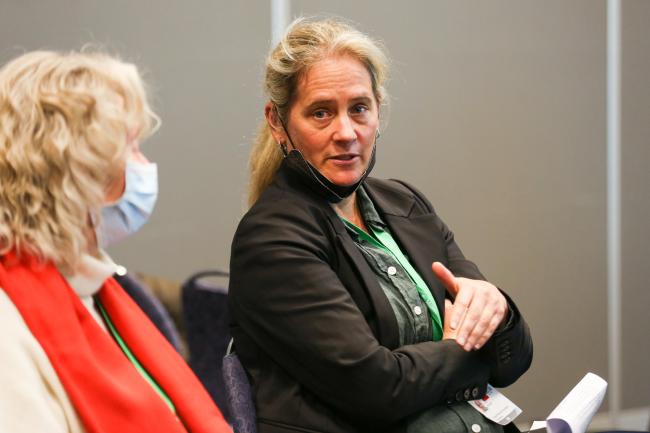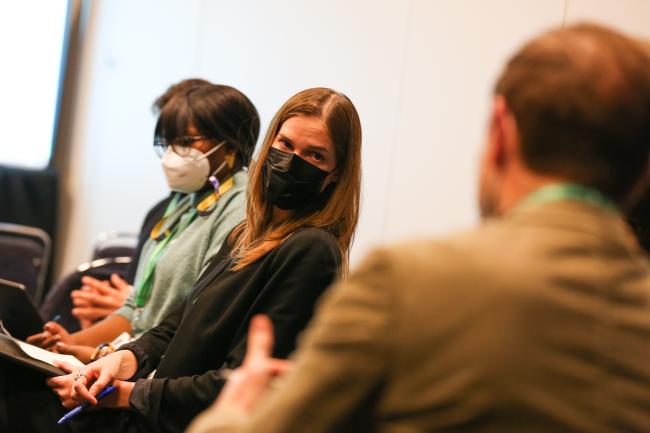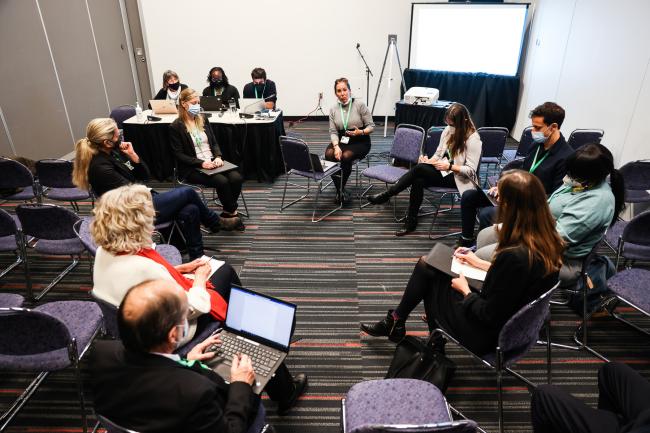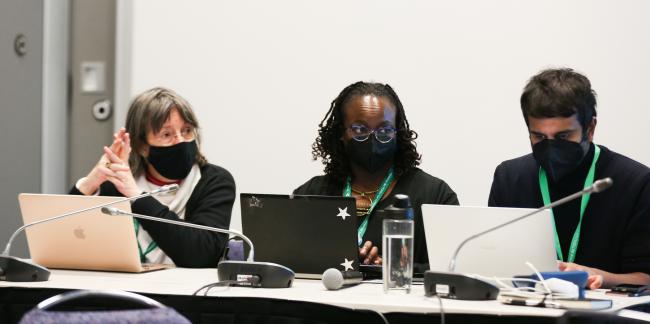About
Nature-positive synergies between these important agreements are possible through: comprehensive management of risks, breaking down silos, and integrating policies, budgets, and plans at all levels.
Challenges and opportunities exist for deepening synergies between the post-2020 global biodiversity framework (GBF), the Sendai Framework for Disaster Risk Reduction (DRR) 2015-2030, the Paris Agreement on climate change and the Glasgow Pact, and the 2030 Agenda for Sustainable Development. To explore some of these challenges and opportunities, the UN Office for DRR co-convened this informal discussion with the Potsdam Institute for Climate Action Research (PIK), the Partnership for Environment and Disaster Risk Reduction (PEDRR) and Friends of Ecosystem-based Adaptation (FEBA).
This event brought together representatives from these global regimes, as well as scientific experts, member states, and non-governmental organizations, to discuss how we can better confront the systemic nature of risk, which has come into sharp relief during the COVID-19 pandemic, the climate emergency, and the biodiversity crisis. The event sought to contribute key insights to the overall theme of the CBD COP’s high-level segment, “Ecological Civilization: Building a Shared Future for All Life on Earth.”
Moderating the informal discussion with participants sitting in a circle, Johanna Bernstein, UNDRR, called for ideas on synergies, noting they could be included in the midterm review of the Sendai Framework, with the results feeding into the 2023 Sustainable Development Goals (SDG) Summit, where delegations are expected to review progress in the implementation of the 2030 Agenda and the SDGs.
By video, Mami Mizutori, Head of UNDRR, said humans unfairly target nature as the cause of “natural disasters,” trying to escape their own culpability. She urged nature-positive synergies between the GBF, the Sendai Framework, and the SDGs, through: comprehensive management of risks; breaking down silos; and integrating policies, budgets, and plans at all levels. She expressed hope for COP 15 to create momentum to strengthen links and integration between the Mid-Term Review of the Sendai Framework, the International Decade for Action on Water for Sustainable Development, the SDG Summit, and the Global Stocktake under the the Paris Agreement, all in 2023. She stressed that to stop disasters we must stop our war on nature.
Bernstein asked the group what a new landscape of compounding risks, because of cascading impacts from transgressing planetary boundaries, means for a post-2020 GBF. One participant said that nature-based solutions (NbS) are often misunderstood, stressing that they are not just another form of conservation, but about tangibly using nature for people and as a critical tool for disaster management and risk reduction.
Bernstein followed up on these remarks by questioning whether a landscape of systemic risk is motivating governments to act on nature-climate synergies that have been poorly understood. A participant responded, noting these synergies must be reflected in the GBF if society is to remain below 1.5°C of warming.
On the same question, a participant stressed that biodiversity and nature must be fully integrated into all processes to maximize scarce resources and capacities in many countries. On an urgent response to integrating these synergies, she stressed that: “we are not going to have a perfect GBF, but we cannot repeat the failure of not meeting any of the Aichi Biodiversity Targets. I do not want to be repeating the same story 10 years from now.”
In further discussion, participants discussed the issue of value for nature, with one participant noting the need for countries to include the value of ecosystem services on their national balance sheets, stressing that their value should be increasing over time. She emphasized why value for nature is of critical importance since biodiversity loss unravels ecosystems and makes climate change worse, stating that: “no one understands that nature loss and climate change amplify each other, and we are spiralling faster down a hole.”
Regarding a question from Bernstein on restoring our “flawed” relationship with nature and deepening an understanding of “humans in nature” rather than “humans and nature,” a participant underscored that for Indigenous communities in her country of Colombia, biocultural relationships underpin how Indigenous People have been preserving ecosystems for centuries. She also suggested shifting away from market-based approaches as Indigenous and biocultural approaches do not "counts everything when they are part of nature.”
Bernstein then asked for ideas for better synergizing the GBF with other key agreements, to respond to the current risk landscape. Participants suggested:
- research across agencies and departments to understand the issues;
- strengthening, not arguing over, what “approach” to take;
- learning from the practitioners on the ground;
- building “needs-based” ministries, by really listening to the needs of farmers and pastoralists, among others; and
- linking sustainable development to the highest level of government, to ensure a “whole of government” implementation approach.
Others noted that the courts are the most effective entities for holding governments accountable. One participant bemoaned lack of collaboration among international agencies.
Participants also:
- called attention to the links between DRR, climate change, and forest degradation, lamenting that it has been an uphill task to achieve synergies with the CBD on protecting large carbon sinks;
- suggested that ultimately the problem is getting the national government and business to make the correct decisions on how to avoid the risks posed by certain investments in the face of “natural disasters”;
- noted that the UNDRR has moved away from the language of “natural disasters,” contending that no such thing exists, and calling for systemic behavior change to address disasters; and
- called for “making the business case against” certain actions, directly addressing financiers, and explaining why certain seemingly lucrative actions will actually lead to losses iin the long term.
Organizers: UNDRR
Contact: Kristin Meyer, UNDRR kristin.meyer@un.org
For more information: https://www.cbd.int/side-events/4918
To receive free coverage of global environmental events delivered to your inbox, subscribe to the ENB Update newsletter.
